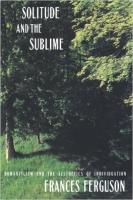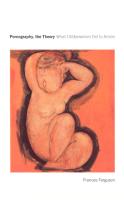Biography
My research interests include the literary field of the eighteenth century and Romanticism as it altered over a period of a hundred years or so (the rise of criticism and reviewing, the changes in the relationship between poetry and the novel); the history of reading and practical criticism; the rise of mass education; the importance of Dissent in educated and educational thought in the eighteenth and nineteenth centuries.
Students working with me have written on a variety of topics, including Wordsworth’s and Coleridge’s debts to philosophy; the importance of property law for the depiction of female character in the eighteenth century; the critique of marriage that develops in and around the Victorian novel; the importance of historicism in the eighteenth century; the relationship between narratives and justice; the history of experiments on children; the significance of inexperienced characters in the eighteenth century novel; literary and aesthetic education in the Victorian era and early twentieth century; journalism and fiction in the nineteenth century; and others.
Select Publication
- Pornography, The Theory: What Utilitarianism Did To Action (Chicago: University of Chicago Press, 2005).
- Solitude and the Sublime: Romanticism and the Aesthetics of Individuation (New York: Routledge, 1992).
- Wordsworth: Language as Counter-spirit (New Haven: Yale University Press, 1977).
- “Dissenting Textualism: The Claims of Psychological Method in the Long Romantic Period,” Studies in Romanticism 49 (Winter 2010), 577-599.
- “Writing and Orality around 1800: ‘Speakers,’ “Readers,’ and Wordsworth’s ‘The Thorn’ in Wordsworth’s Poetic Theory, ed. Stefan Hoesel-Uhlig and Alex Regier (London: Palgrave, 2010), pp. 119-138.
- “Envy Rising: The Progress of an Emotion” in Romantic Metropholis: The Urban Scene of British Culture, 1780-1840, ed. James Chandler and Kevin Gilmartin (Cambridge: Cambridge University Press, 2005), pp. 132-148.
- “Emma, or Happiness (or Sex Work)” [on Flaubert’s Madame Bovary], Critical Inquiry 28 (Spring 2002), 749-779.
- “Jane Austen, Emma, and the Impact of Form, Modern Language Notes, 61:1 (March 2000), 157-180.
- “Canons, Poetics, and Social Value: Jeremy Bentham and How To Do Things with People,” MLN, 110 (1995), 1148-1164.
- “Rape and the Rise of the Novel” [on Richardson’s Clarissa], Representations 20 (Fall 1987), 88-112.


